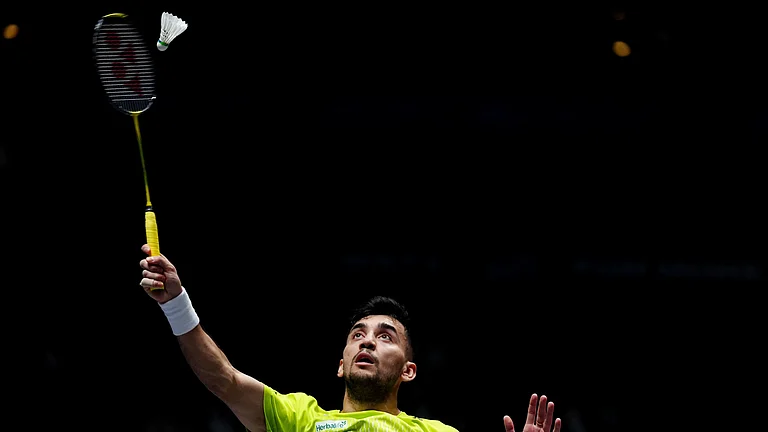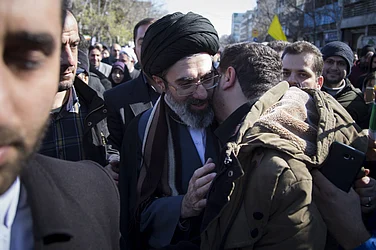For the past week, Abir, a mother of three and a resident of Gaza City, has been drinking water not meant for drinking. When the Israeli forces started raiding the Gaza Strip after October 7, with the aim of “exterminating” Hamas, Abir, who was born and raised in Gaza, although is no stranger to Israeli occupation and war tactics, had nevertheless thought that ordinary citizens like her would probably be spared.
They were not. Soon, she and her family started experiencing intense bombing around their building. It was run or die. But running is not easy for Abir, who lives with Multiple Sclerosis (MS), a disabling neurological disease for which she needs to take monthly injections in order to keep the attacks in check. Since the bombings began, her medication has been on hold. She recently had an attack as well and isn’t sure if she could survive another one without medical care.
At present, Abir is living in a crowded, rented apartment in South Gaza, which is relatively safer than her previous apartment in northern Gaza. The tenements are shared between several other displaced persons like her. These people may not have been alive if they had not escaped on time.
“I am not sure if my apartment is still viable for living or if it even exists anymore. We are staying here with multiple families who are all good people. But it’s tough as resources are limited,” Abir states. “We have been standing in long queues for bathrooms, drinking unsanitised and unsweetened water from the bathroom taps. The children are falling sick,” she adds.
While the war on Gaza has already claimed at least 3,300 people so far, as revealed by the Palestinian health ministry, 1,200 more are believed to be buried under the rubble across Gaza. Further, 11,000 people have been left wounded by Israeli air strikes at the time of writing.
According to analysts, activists and Palestinian authorities, over 60 per cent of the casualties are women, including the elderly and children. With the casualty count rising manifold each day as Israel continues to strike the Gaza Strip, women, children, elderly, and disabled persons like Abir are in urgent need of humanitarian aid, intervention and a ceasefire. With medical supplies and clean drinking water running out and women being forced to live in cramped spaces, sometimes with other men, onset of trauma, PTSD, and potential sexual violence has also become a major issue.
Studies have repeatedly shown the impact of war on children, youth, adults and their families in the Gaza Strip - controlled largely by Hamas - which has been a contested area for nearly two decades now between Palestine and Israel. Following the 1948 Naqba imposed by Israel, Palestinians have become one of the largest refugee groups in the world.
Experiencing natural and/or man-made disasters, displacement, violence or conflict can result in multidimensional trauma. It is thus not surprising that Palestinians are continually at a huge risk of developing PTSD and other psychological problems. A study which looked at 607 adolescents and adults aged between 10 and 30 years who have lived through violence in Gaza from 2006-2021 finds that at least 97.2 per cent of participants have experienced at least six traumatic experiences up to the year 2006 and 100 per cent of the participants were exposed to traumas in 2021.
Such generational trauma is reflected in the art, poetry, prose, and songs of Palestinian refugees, exiles, or expats living abroad in countries like the United States, United Kingdom, and other such nations that repeatedly and wholeheartedly support Israel at political and international forums and fail to condemn its alleged attacks on civilians in Palestine.
Chilling images and videos from the bombed Al Ahli Arab Hospital - an important centre for birthing and reproductive health, among other medical facilities in infrastructure started Gaza - have been emerging from Palestine for the past two days where Palestinians are claiming over 1,000 people (mostly the displaced, women, children and elderly) were killed by Israeli air raids. Amid mounting outrage and human rights violations, Palestinians have declared the current attacks by Israel as a genocidal attempt at ethnic cleansing.
How will Palestinians cope with such losses? Rifat Kassis, a Christian Palestinian academic and public servant from Beit Sahour, states that the Palestinian resistance movement has been a great source of comfort.
“Our continuous resistance is part of this coping mechanism, that we are not surrendering. But the Palestinian people are not just fighters or terrorists. We are also artists, writers, singers. Even in Gaza,” he states in an interview from the West Bank. “One of the most noted singers in the Arab world today is from Gaza. We are people who love life, and we have many facets - emotional, intellectual and creative. But resistance is at the core of our identity. Without this steadfastness to our cause, we will perish,” he asserts.
He adds that the ongoing violence is changing the minds of young people. As Israeli violence continues without any censure from the international community, which has dubbed Palestinians as anti-semitic, many in Palestine have reached a position where they are feeling alienated and fed up with the “so-called international community”, including the United Nations.
“All these words that were used to strip us of our rights and lands like ‘democracy’, ‘human rights’, ‘non-violence’ — the countries that taught us these values do not themselves adhere to them.
So the younger generation, which grew up watching this, seems to have lost the faith that we had once fostered,” Kassis says.
This loss of faith in democracy and peaceful resistance can have dangerous implications for both the Palestinian population and the larger local geopolitics of the region. Speaking to Outlook, Palestinian singer and activist Dr Huda Asfour, who is currently in Brooklyn, says that Palestinians have always found a way to fight their wars with love. But what has been happening since October 7 is, in many ways, unprecedented.
“Everyone we know has lost someone in the war. It’s not just this war, it has been a successive barrage of wars and settler violence, which often goes unnoticed by Western media,” Dr. Asfour says. Beyond just physical violence and injuries, the psychological trauma of being displaced from their home and being tagged with dehumanising labels like “human animal” and “bloodthirsty terrorists” lasts longer.
“I am watching kids mourn around their dead parents, hearing stories of people leaving their dead or dying relatives or friends behind because there is no time to save them and save themselves, too. It is heartbreaking and a complete violation of everything human. We don’t know how we will come back from this,” Asfour laments.






















